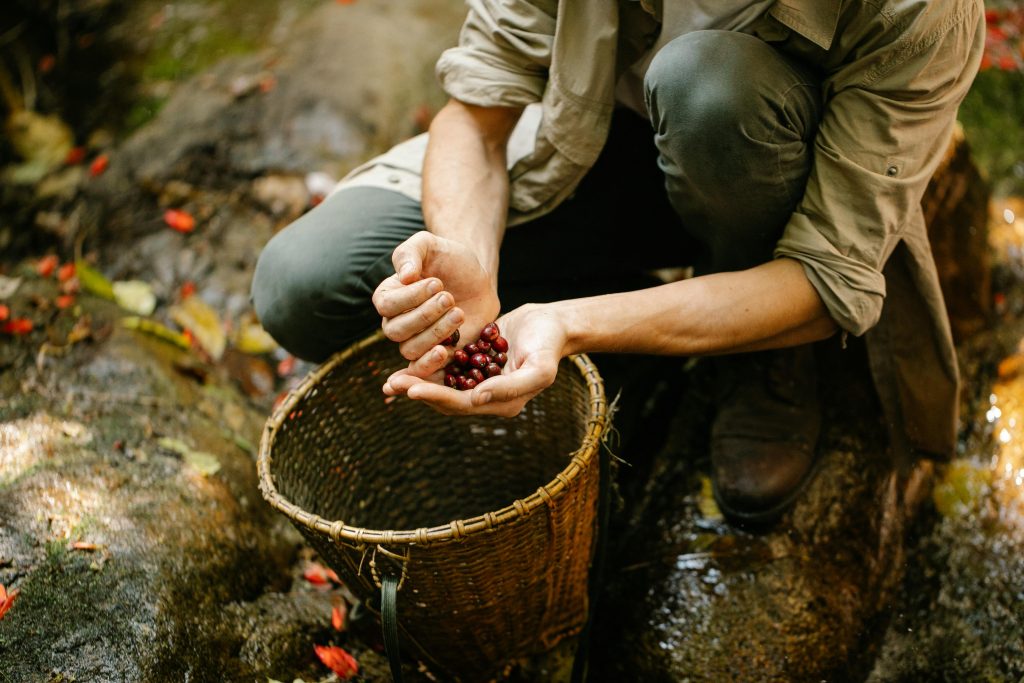(Published in CBC News)
Milkweed pods marinated in cider vinegar? Curry soup with cattail hearts? Wild salmon with white spruce sauce? Brie with wild rose petal jelly? Who knew that many of the things that grow along Canadian trails, ditches and back roads are not only edible, but in demand?
In fact, back fields and forests from coast to coast are a natural grocery store for those who have a keen culinary eye and a sense of adventure.
It’s not just back-to-the-earth types who are showing a penchant for wild things. Foodies, including some of the country’s top chefs, are singing the praises of our indigenous delights – and more and more products are showing up at markets and on store shelves to meet the demand.
One company at the forefront of this trend is Forbes Wild Foods. The company, which is based just outside the western Ontario village of Creemore, supplies several Toronto chefs (including the well-known Susur Lee) with everything from wildflower honey to wild strawberries. Products are also sold at stores throughout Canada – there are a dozen in Toronto alone – as well as at farmers markets in Toronto and online at www.wildfoods.ca.
The company has about 100 products on its list, and recently it began distributing to the U.S. Owner Jonathan Forbes, who started the company a decade ago, says demand for his products has recently taken a significant upturn.
“There’s been a huge change in the past couple of years,” he says.
According to Forbes, the interest in wild foods coincides with the growing demand for organic products.
“People are becoming more and more health conscious,” says Forbes. “There’s a lot more acceptance in the belief that food and health are connected, and that if you eat well, your body is better equipped to deal with whatever comes its way.”
He adds that the rising demand for local food has also spurred interest in wild foods, as has an increased cynicism towards the commercial food industry on the whole.
“In the last few years I’ve seen people become more distrustful of where some food comes from and the processing of it. People are wondering, ‘Is there a gene from a certain kind of fish in this?,'” he says, referring to the debate over bioengineered crops.
Even though wild food is in demand, Forbes says there is still a disconnect between the land and the people who inhabit it. He says many people still don’t realize the bounty that exists in our own natural habitat.
One of the biggest sellers at Forbes Wild Foods is birch syrup, for example. Forbes explains that it’s used to flavour a wide variety of foods, including scallops, salmon and roasted veggies. It’s also delicious drizzled over pancakes, he adds.
Dried mushrooms, mainly from the Ottawa area, Western Quebec and Vancouver Island, are another big seller, as well as a variety of jellies made with everything from chokecherries to elderberries. Nuts are also popular.
“There are six or seven types of nut trees in Ontario alone,” says Forbes, adding that these include everything from beechnuts to black walnuts to acorns.
Forbes argues that the wild food that grows in abundance in remote areas throughout Canada could be harvested as a source of income by people in rural communities with high unemployment. His company hires a network of independent harvesters throughout the country to pick food that is in season. Among his harvesters are indigenous peoples, including First Nations groups in Tofino, on Vancouver Island, who harvest a variety of west coast berries, and an Ojibwa co-op in northwestern Ontario that supplies Forbes with wild rice.
earning to forage
- The Edible Wild Plants workshop
- A Field Guide to Edible Wild Plants: Eastern and Central North America, by Lee Allen Peterson (Recommended by Viki Mather)
- The Forager’s Harvest: A Guide to Identifying, Harvesting, and Preparing Edible Wild Plants, by Samuel Thayer
- Edible Wild Fruits and Nuts of Canada, by Nancy Turner and Adam Szczawinski (Recommended by Jonathan Forbes)
- The Wild Food Trail Guide, by Alan Hall (Recommended by Jonathan Forbes)
- Stalking the Wild Asparagus, by Euell Gibbons (Recommended by Jonathan Forbes
